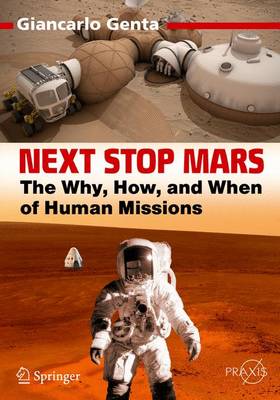Springer Praxis Books
2 total works
As the reality of a manned Mars voyage becomes more concrete, the details are still largely up in the air. This book presents an overview of proposed approaches past, present, and future, both from NASA and, increasingly, from other space agencies and private companies. It clearly displays the challenges and the ingenious solutions involved in reaching Mars with human explorers.
Technology and the Growth of Civilization
by Giancarlo Genta and Paolo Riberi
Our natural world has been irretrievably altered by humans, for humans. From domesticated wheat fields to nuclear power plants and spacecraft, everything we see and interact with has in some way been changed by the presence of our species, starting from the Neolithic era so many centuries ago.
This book provides a crash course on the issues and debates surrounding technology’s shifting place in our society. It covers the history of our increasingly black-box world, which some theorize will end with technology accelerating beyond our understanding. At the same time, it analyzes competing trends and theories, the lack of scientific knowledge of large sections of the population, the dogmas of pseudoscience, and the growing suspicion of science and technology, which may inevitably lead to scientific stagnation.
What will the future of our civilization look like? How soon might scientific acceleration or stagnation arrive at our doorstep, and just how radically will such technological shifts change our culture? These are issues that we must address now, to insure our future goes the way we choose.
